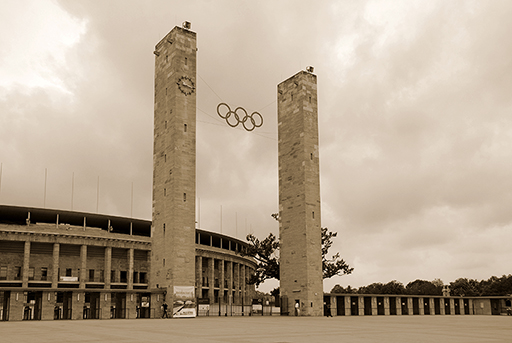3 Sport and international relations
Sport can be recognised as a social and political phenomenon which has a great impact on public opinion and has repeatedly become a pawn in international relations. History shows us that governments have used international sports events to pursue their own interests rather than understanding, friendship and peace among nations (Kissoudi, 2008). Sporting victories for a national team can improve and reinforce superiority of its political regime – for example both the 1934 World Cup in Italy and the 1936 Berlin ‘Nazi’ Olympics.
In the next activity you will explore how war has impacted sport and international relations. Author George Orwell once famously described international sport as ‘war minus the shooting’ in a statement that has become ubiquitous within politico-sporting vocabulary (Beck, 2013).
Activity 3 A timeline of sport, war and international tensions
Click on the link to the timeline below to learn about how war and sports events have been inextricably linked over the years.
A timeline of sport, war and international tensions [Tip: hold Ctrl and click a link to open it in a new tab. (Hide tip)] (open the link in a new tab or window so you can easily return to the course).
Comment
This activity serves as a snapshot for how international relations can impact sport and vice versa. There are, of course, several other examples that could have been included here. Hopefully you thought about some further events or situations. You will look at some more in the next session.

